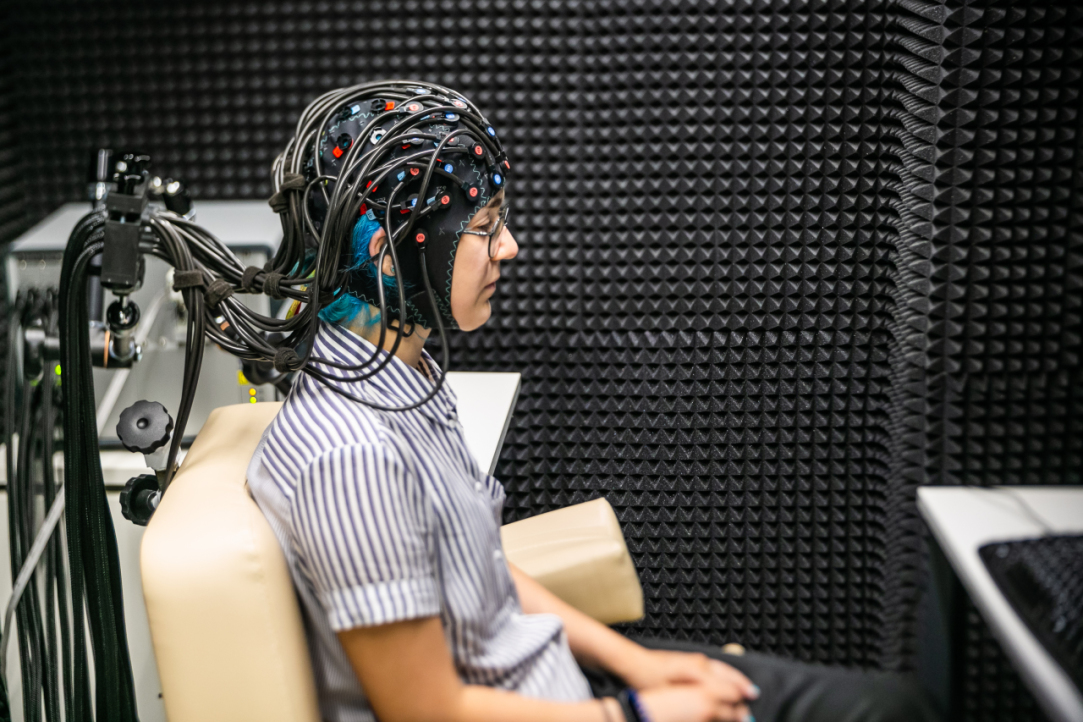
Joint Project of Scientists from HSE University and Surgut State University to Help Prevent Recurrent Heart Attacks and Strokes
One of the winning projects of a competition held by HSE University’s Mirror Laboratories last June focuses on the use of machine learning technologies to predict the outcomes of acute coronary syndrome. It is implemented by HSE University’s International Laboratory of Bioinformatics together with the Research and Educational Centre of the Medical Institute at Surgut State University. Maria Poptsova, Head of the International Laboratory of Bioinformatics and Associate Professor at HSE University’s Faculty of Computer Science, talks about how this joint project originated, how it will help patients, and how work to implement it will be organised.
.jpg)
Card File: Travel Diary
Optimising a city's transportation system requires insights into the dynamics of urban traffic to understand where, how, when, and to what extent people travel within the city. The rationale behind route selection and the choice of transportation mode are also of importance. The primary source of this data is the travel diary, a tool designed to survey people's transport behaviour. Based on a paper by Maria Sergienko, a master's student of the HSE Faculty of Urban and Regional Development, IQ.HSE examines how people's daily travel can be described in detail and why an automated diary cannot yet completely replace its manual counterpart.

HSE University Study: Domestic Travel Services Prove Their Competitiveness
HSE University’s Institute for Public Administration and Governance (IPAG) has conducted a proactive independent study of digital travel services. Based on the results of this, a rating of 40 tourism platforms was compiled. The platforms were assessed according to 75 parameters. The ratings include those platforms that, in addition to hotel booking services, provide a set of additional options for tourists, are also present in various industry lists, and are often mentioned in media reviews.

The Path to the Stars: How HSE University Launches Satellites and Gathers Talent
The CubeSX-HSE-3 satellite, created by staff and students of HSE MIEM and based on the OrbiCraft-Pro 3U platform developed by the SPUTNIX private space company, was launched into low-Earth orbit in June. It is the third research vehicle developed at HSE University as part of the SPACE-π project. The HSE University team plans to launch another spacecraft in December 2023 and in the future, it plans to launch two CubeSats into orbit per year. In a special report for the HSE News Service, HSE University’s Project and Educational Laboratory of Economic Journalism explains what HSE University’s satellites do in space and what kind of work goes into them on Earth.
.jpg)
Human Capital Multidisciplinary Research Centre Opens Exhibition at Technoprom 2023 Forum
On August 22, 2023, the Human Capital Multidisciplinary Research Centre (HCMRC) opened an exhibition as part of the Technoprom 2023 forum in Novosibirsk. On the opening day, more than 300 people visited the stand, of which more than 50 took part in an interactive ‘anthropologist simulator’ and a visual attention test. The HSE News Service reports on the exposition and the feedback received by the experts.

HSE Researchers Examine Wellbeing of Russian Social Media Users and Rank Public Holidays by Popularity
Researchers of the HSE Graduate School of Business trained a machine-learning (ML) model to infer users' subjective wellbeing from social media posts. Having processed 10 million tweets, the researchers compiled a rating of holidays celebrated in Russia based on their popularity. The New Year tops the list, but Russian-speaking users of Twitter are also happy to celebrate Defender of the Fatherland Day, International Women's Day, and Halloween. The study findings have been published in PeerJ Computer Science.

Good Deeds Bring Moral Satisfaction to Russians
Researchers from HSE University have analysed why people feel happier when they help others. It turns out that joy is caused by different reasons, depending on who we help — relatives or strangers. In both cases, happiness brings moral satisfaction from doing a good deed, but helping loved ones is also associated with satisfying the need for belonging and acceptance, while helping strangers provides a sense of autonomy. The results of the research were published in the Journal of Social and Personal Relationships.

Student Esports in Russia: The Growing Popularity and Prospects of Phygital Sports
HSE University experts have found that 75.3% of male students play competitive online games at least several times a month. Among women, this hobby is much less common: only 20.2% of female students are interested in online games. The HSE News Service covers the results of an expert and analytical report, released by HSE specialists, on the development of student esports in Russian universities.

New Technologies for Preserving Brain Functions: ‘Not Magic, but Normal Engineering’
New methods of brain mapping will make it easier to identify the cortex areas responsible for speech functions and to perform operations on the brain, as well as reduce the likelihood of damage to important areas. In addition, this will allow for more frequent use of non-invasive methods for restoring speech and other functions lost due to injuries and illnesses.

The World at Your Fingertips
HSE University scientists have created a model for decoding finger movements for next-generation hand prostheses. This will allow users not only to grab objects, but also to gesticulate using the movements of each finger.


Application deadline: June 23, 2025